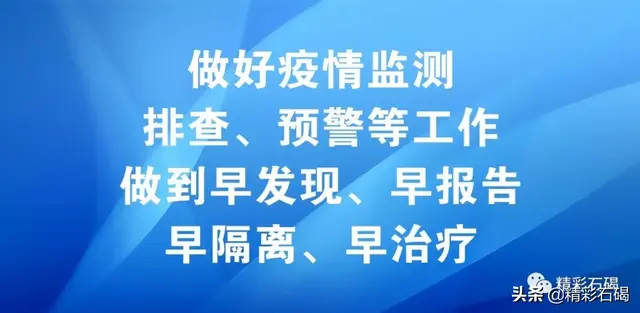
pharma-Nearly 80 AI Startups Created in China’s Ph
日期:2024-01-13
来源:玫瑰财经网
浏览:次

Credit: Visual China
BEIJING, December 14 (TMTPOST) – The Global Health Drug Discovery Institute (GHDDI) announced a collaboration with Microsoft Research AI4Science on Wednesday, with an aim to develop generative artificial intelligence (AI) and basic large-model technologies in the field of infectious diseases to speed up drug discovery and development.
The GHDDI, initiated by Tsinghua University, the Bill & Melinda Gates Foundation, and the Beijing Municipal Government, operates as an independent, non-profit global public health and drug innovation institution. Its mission is to facilitate more efficient drug discovery and development to address global health threats.
According to information obtained from a recent meeting held by GHDDI, from 2010 to 2021, the number of drug development projects involving AI technology had grown from 6 to 158 globally.
Traditional computer-aided drug design relies on physics, while AI-assisted drug development primarily involves data-driven deep learning and large-model technologies, making it simpler and more versatile. AI algorithms have been able to empower drug discovery and development in various stages, including target discovery, drug repurposing, compound screening, molecular design and optimization, and patient recruitment grouping.
GHDDI's collaboration with Microsoft Research AI4Science focuses on infectious diseases threatening global health, such as tuberculosis, viral infections, and malaria, integrating generative AI, basic large-model technologies, virtual high-throughput screening, and expert experience. Leveraging GHDDI's drug development capabilities and its platform dedicated to turning cutting-edge technologies into products, the collaboration aims to achieve a complete process from virtual compound generation and screening to synthesis and optimization, biological experimental verification, and then to AI iterative upgrading.
Zhang Rumin, the Chief Scientist of the GHDDI, said that compared to the lengthy traditional drug development process, AI technologies can successfully design small molecule inhibitors with significant effects against relevant pathogens within 3 to 5 months. For example, in the research on Mycobacterium tuberculosis and coronaviruses, the rapid design of new small molecule inhibitors demonstrated the potential of AI in drug design.
In studies targeting Mycobacterium tuberculosis and coronaviruses, the joint team of GHDDI and Microsoft Research AI4Science has successfully designed various effective small molecule inhibitors against key target proteins of these pathogens through the innovative generative AI drug development process in just six months. These compounds performed exceptionally well in enzyme inhibition experiments, with inhibitory efficacy even surpassing known lead compounds.
Guo Jinjiang, Head of Data Science at the GHDDI, said that AI technology has a significant impact on the field of life and health. Especially in the drug development model where AI algorithms are used to repurpose existing drugs, there can be savings of 3%-50% in both time and cost. However, he cautioned that although AI technology can accelerate the drug development process and reduce costs, there are many challenges in the entire process. These include how to better enable AI to understand and learn biomedical data, and how to improve collaboration between biopharmaceutical companies and technology giants in the implementation and transformation of AI.
Additionally, experts said at the recent conference of the GHDDI that AI has brought about significant disruptions to many industries, and there are challenges in terms of ethics, policies, and values. Authorities need to formulate policies and regulations, and establish a relatively complete mechanism. Clearer regulatory boundaries are required to further promote the development of AI technology in a direction beneficial to humanity.
As of the end of 2022, there were over 700 AI pharmaceutical companies globally, and nearly 80 in China.
The drug discovery and development process often takes a decade and requires an investment of $1-3 billion, with a success rate of nearly 10%. With the emergence of AI-powered pharmaceutical startups, there is the potential for transformation in the pharma industry.
(This article was originally published on the TMTPost App. Author: Lin Zhijia.)
相关文章阅读
-

500吨汽车吊作业性能表(汽车吊支腿反力及抗倾覆验算)
-

石碣镇汽车站(今天,石碣汽车客运站恢复运营)
-

招贤汽车站(9月14日起,莒县K601路增开大站快车)
-

北京福田汽车图片(自重不到两吨,详解福田领航S1小卡)
-

东风轻型汽车(“东风轻型车”横空出世 未来无人驾驶车将快递送到家门口)
-

周口市汽车东站(郑阜高速铁路上的主要客运站——周口东站)
- · 汽车划痕修复技术(掌握汽车刮痕修复技巧,为自己攒下小金库)
- · 汽车换球头价格多少(球头坏了汽车什么症状)
- · 中国汽车关税(100%关税,中国电动汽车刺激了谁)
- · 汽车设计公司(涨姿势|国内有哪些好的汽车设计公司)
- · 济南汽车总站北区电话(济南长途汽车总站所有班车已“应停尽停”,出行请打96369)
- · 霸锐汽车优惠(10T的思域能买吗40万买霸锐还是途昂|答读者问)
- · 北碚区汽车站(重庆北碚的水土老街,曾是江北县城的所在地,如今却破败不堪)
- · 邹平到青岛汽车时刻表(今日起,恢复运行)
- · 汽车按键图标大全(一图看懂汽车内所有按键)
- · 太原建南汽车站地址(太原建南汽车站复工,已开通阳泉、平定等方向的8条线路)
- · 汽车尿素加盟(车用尿素设备多少钱一台)
- · 玩具汽车的图(男人真正大玩具牧马人JL25寸升高,上37寸轮胎真过瘾)
- · 汽车原厂脚垫(那些中看不中用的车内脚垫该扔就扔,还不赶紧看看你的车是不是)
- · 微信汽车游戏(2023年最受欢迎的微信大屏抽奖互动游戏有哪些怎么免费制作的)
- · 汽车机械钥匙怎么配(汽车钥匙全丢了怎么办如何配汽车钥匙,要准备什么资料)
热点推荐
最新新闻
Copyright (c) 2022 玫瑰财经网 版权所有
备案号:冀ICP备17019481号
玫瑰财经网发布此信息的目的在于传播更多信息,与本站立场无关。玫瑰财经网不保证该信息(包含但不限于文字、视频、音频、数据及图表)全部或者部分内容的准确性、真实性、完整性、有效性、及时性、原创性等。
相关信息并未经过本网站证实,不对您构成任何投资建议,据此操作,风险自担。






